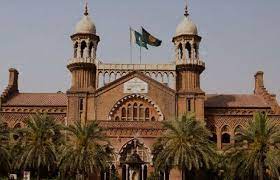Recently, the Lahore High Court (LHC) overturned the resignations of 70 Pakistan Tehreek-e-Insaf (PTI) MNAs including top-tier PTI leaders Fawad Chaudhry, Shah Mehmood Qureshi, Pervaiz Khattak, and others, who previously challenged the acceptance of their resignations as MNAs from their respective constituencies by Speaker National Assembly.
During the hearing of the pleas submitted by the PTI lawmakers, the court nullified the notifications of the Election Commission of Pakistan (ECP) and the National Assembly Speaker Raja Pervaiz Ashraf regarding the acceptance of the resignations. The court directed the concerned MNAs to appear before the Speaker to convince him regarding the reversal of their walkouts.
The issue of the PTI’s resignations from the National Assembly as well as the suicidal attacks on its own provincial governments in the two important federating units including Punjab and the Khyber Pakhtunkhwa (KP) has become an interesting topic for talk shows and Scholarly debates in the country and abroad. After its ouster from power as the result of a successful no-confidence motion against former Prime Minister Imran Khan in April last year, the PTI Chairman refused to play the role of opposition in the lower house and ordered his MNAs to submit resignations to the Speaker National Assembly.
Apparently, it was a fatal attack to smash the newly installed coalition government in its early days to clear the way for an early general election in the country that failed. Later, Khan dissolved the PTI’s governments in Punjab and the KP in a bid to create a constitutional crisis that might lead to countrywide general elections but that recipe also proved futile and disastrous for the group itself. The coalition government, Speaker, and independent political analysts urged the PTI to return to the Assembly and play its constitutional role of the opposition until the house completes its 5-years term in 2023. As for the PTI’s political strategy, the group sought the court’s assistance in the approval of the resignations that linked it to the in-person verification and satisfaction of the House custodian. During the ongoing tussle between the coalition government and the PTI, Speaker National Assembly okayed the resignations of dozens of the PTI MNAs but then, the Party and its leader changed their mind and urged the court to help them in undoing their self-created catastrophe through the reversal of their resignations. Fortunately, the Lahore High Court agreed with the PTI’s MNAs regarding the withdrawal of their resigns with Speaker’s permission.
A question arises worth a hundred thousand dollars, what was the core objective of the PTI’s resignations from Assemblies, and how much has the party itself, the public, the country, and democracy benefited from this strategy over the past year? The answer is no, in fact, the PTI cut its hands, disarmed itself, and turned into a paralyzed and maimed political group, that is currently seeking assistance from the courts as well as its staunch enemies to reequip itself agaisnt its competitors. Historically, resignation from the parliament and dissolution of provincial assemblies was a mistaken and biased strategy that proved to be counterproductive for its architects. The PTI Chairman Imran Khan himself disrespected the public mandate and quit the Assemblies for a gratuitous quest for power. Seemingly, the PTI has admitted its political misdemeanors, and struggling hard to regain the parliamentary status that it relinquished voluntarily in the past. The judiciary once again threw the ball in the Speaker’s court, which will surely pursue his party policy by means of delaying tactics, so-called verification, and the confirmation of the concerned MNAs.
Realistically, the PTI is a major party at the national level but the group has ruined itself through the politics of hate, ego, and antagonism. The philosophy of so-called pure and fake popularism incited the party to initiate a witch hunt agaisnt the national institutions for political reasons that have surely damaged its politics and affected its public rating. After the recent unrest, the group is currently intentionally shedding off responsibility for the recent violence but still hesitates to condemn and stop its campaign against the military and other national institutions.
There is a dire need for responsible politics and a unified national approach that respects public mandate, upholds parliamentary traditions, and creates a balance of power between the pillars of the state. There is no space for hate and rigidness in politics, leaders and parties must respect others, exhibit the rule of the law, and never fall prey to emotions as fake narcissism is poisonous for political stability, democracy, and national unity. Hopefully, the PDM government and Speaker National Assembly will respond to the call of time by resorting to dialogue and negotiation that facilitates the PTI’s return to the parliament and broader consensus over electoral reforms and a lasting charter of democracy among all stakeholders in the country.







